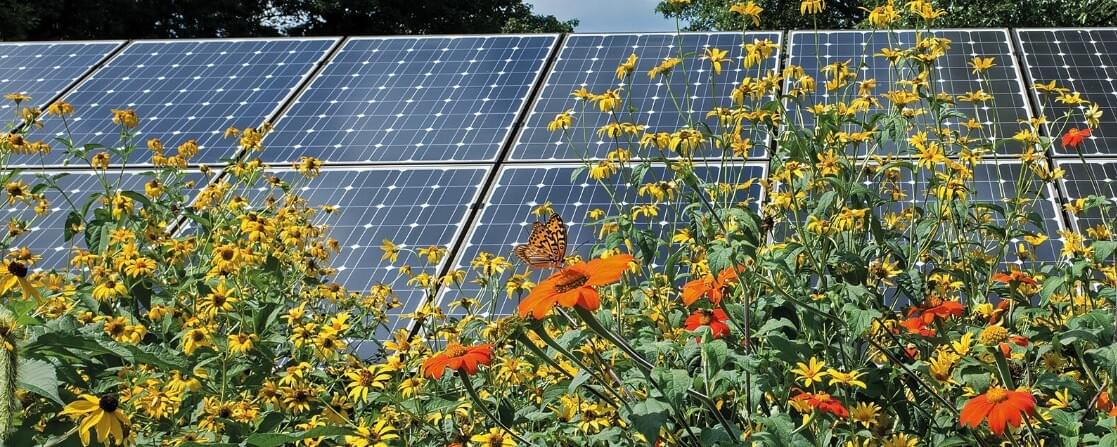Agrivoltaics describes a process for the simultaneous use of agricultural land for food production and PV power generation. The technology enables the efficient dual use of agricultural land: photovoltaics on open spaces can be substantially expanded without significantly using up valuable resources of fertile arable land. Targeted light management optimizes the yields from PV and photosynthesis. In addition, value creation in the region and rural development are promoted, as agrivoltaic projects are ideally suited to be supported in a decentralized by farmers, municipalities and small and medium-sized enterprises. This results in new, economically viable farming options for agriculture.
We are working on the implementation and further development of agrivoltaics in industrial and research projects.
Opportunities in Agrivoltaics.
Agrivoltaics offers great opportunities for agriculture and climate protection. In their foreword, the two Federal Ministers Anja Karliczek and Julia Klöckner support the promising concept of combining agricultural production and renewable electricity generation on the same land.
The guideline provides information on the possibilities and advantages of agrivoltaics, offers an overview of its potential and the current state of technology, and presents practical advice for agriculture businesses, municipalities and companies.
Aside from more efficient land use, agrivoltaics can help reduce water consumption in agriculture, generate stable additional sources of income for farms, and make many farms more resilient against harvest losses. The early involvement of local citizens is a key criterion for success in the concrete implementation of agrivoltaics. https://www.ise.fraunhofer.de/en/publications/studies/agrivo…ition.html
Agrivoltaics: Technical optimization and quality assurance of agrivoltaic systems for maximum yields of PV energy and crop.
